Echoes of Howard as Dutton makes the case for a ‘sliding-doors’ moment
It is no coincidence that Peter Dutton – the last surviving Howard government minister – has adopted the same strategy on petrol excise that John Howard used in 2001.
Peter Dutton has gone all in. The Opposition Leader has decided there’s no room for a two-term Coalition strategy in the 2025 election and declares: “Australians can’t afford three more years of the Albanese government.”
In his budget reply on Thursday, Dutton went a step further, saying this election “matters more than any others in recent history”. Aiming at the extra targets of the Climate 200 teal independents and the Greens, and fears of minority government, he warned: “A returned Albanese government in any form won’t just be another three bleak years. Setbacks will be set in stone.”
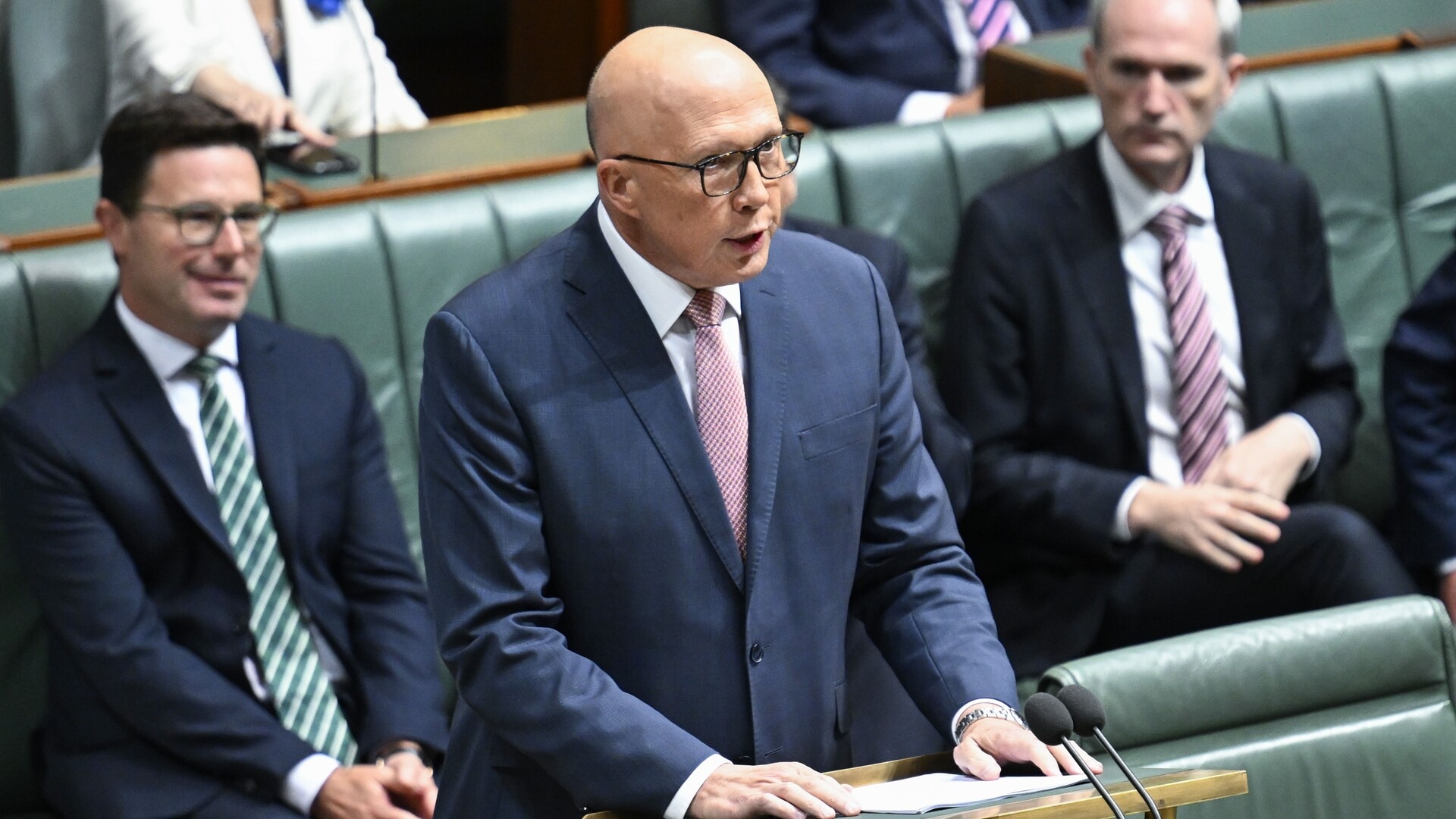
Dutton wants voting Australians to agree with him that this is a “sliding-doors moment” for Australia and “our prosperity will be damaged for years to come” if Labor is re-elected as a majority or minority government.
Part of Dutton’s commitment to this belief is that he is prepared to “do anything” to get elected because the alternative will be worse and he wants voters to see past some populism and economic irresponsibility in his efforts to defeat Labor.
A defining moment in this determination to do what it takes was the decision to respond to Jim Chalmers’ surprise $17bn budget income tax cuts of $5 a week in late 2026 with a promise to halve immediately the petrol excise tax for 12 months with an estimated saving of $28 a week for a one-car family.
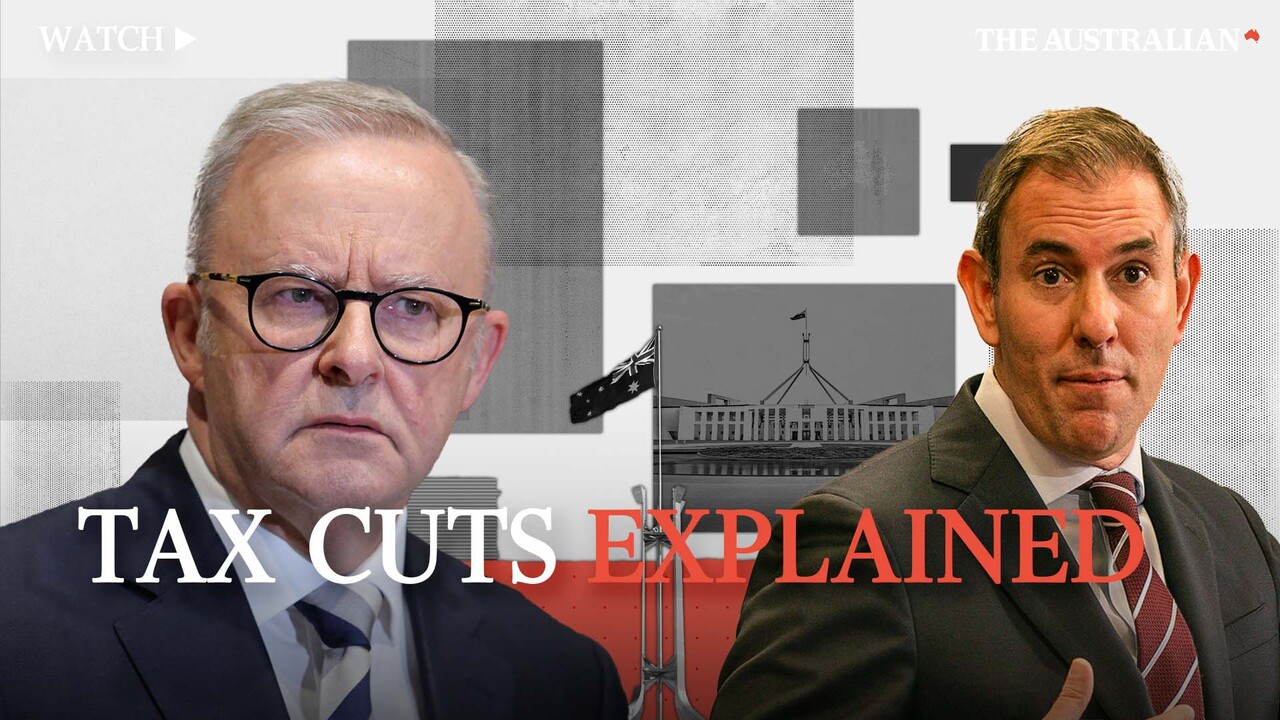
It was a defining moment for Labor, too, providing a platform for the Treasurer and Anthony Albanese to pillory the Coalition for opposing tax cuts for every taxpayer, pledging to repeal the ALP’s permanent and legislated L.A.W. tax cuts while offering only “temporary” and “inflationary” petrol excise cuts.
The election campaign was always going to be won or lost on the cost of living with all its variations and combinations involving fuel, gas and electricity, housing, grocery prices, rent and mortgages.
As Chalmers said on budget night on Tuesday, all these pressures are being felt most acutely by families in the suburbs where “Australia’s future will be won or lost”.
“And that’s where the election will be won or lost,” he told The Australian.
This is the crux of the cost of living and tax cut battle of the 2025 election – will people punish the Coalition opposition for opposing any tax cuts, even those small cuts off into the second half of 2026, or will they reward Dutton for offering immediate although temporary petrol excise cuts that will save the family budget much more.
Dutton said: “People are paying 30 per cent more for their groceries and every cost has gone through the roof. So, our plan starts straight away, people will get the relief at the bowser straight away, with a 25 cent reduction in the price of petrol and diesel.
“Labor’s plan comes in in 15 months’ time and it’s about 70c a day by way of tax cuts. I just think Australians need support now,” he said, emphasising the immediate relief.
Chalmers was relentless in pursuing the opposition to tax cuts and declared opposition Treasury spokesman Angus Taylor and Dutton “will legislate to increase taxes on every Australian worker. This is a proper brain explosion from the Coalition. This is a proper brain snap.
“It beggars belief that when Australians are under cost-of-living pressure, their main policy is to increase income taxes on every Australian taxpayer,” Chalmers said on Thursday.
“This decision will haunt them every single day of the election campaign. We will not let them squirm off this hook.
“This means that if Peter Dutton wins the election, every Australian taxpayer will be worse off.”
Other oppositions, including when Chalmers’ old boss Wayne Swan was Treasury spokesman in 2005, have opposed tax cuts, but it is a brave policy when the election campaign has begun.
What’s more, Dutton has put all his tax break eggs into the petrol excise basket and will not offer any further tax cuts during the election, maintaining his position that tax changes need to be examined from government and be aimed at sustainable reform.
This is a demonstration of Dutton’s determination to win and do whatever is necessary no matter how unconventional or ruthless.
The parallel here is Dutton’s 2018 challenge to Malcolm Turnbull as Liberal prime minister when the then home affairs minister decided Turnbull was irrevocably damaging the Liberal Party and leading the Coalition to defeat. Dutton mounted two challenges after forcing the prime minister’s resignation but was defeated by Scott Morrison after tactical support for Dutton from his supporters was withdrawn.
But Dutton had thrown the rock in the pond, brought down Turnbull and then worked loyally with Morrison through the latter’s surprise win against Bill Shorten and ultimate loss to Albanese.
There is a similar ruthless commitment in not settling for a two-term strategy of reducing Labor to a minority and then seeking, like Tony Abbott, to destroy a weakened government and win government after five years in opposition.
There’s probably a big dose of personal interest in this commitment but it doesn’t change the intent or method.
Casting himself as the leader of the real workers’ party in the old Menzian mould of looking after the forgotten people in the suburbs, regions and small business, Dutton has eschewed the big end of town and built on his conservative victory in the 2023 Indigenous voice to parliament referendum in which the suburbs voted for his “commonsense” approach.
Dutton’s task in this election is huge. A first-term government has not been defeated since Labor lost the 1931 election coming out of the Depression. For outright victory Dutton has to win more than 20 seats, and even to negotiate for minority government he has to win 17 and finish with more than Labor.
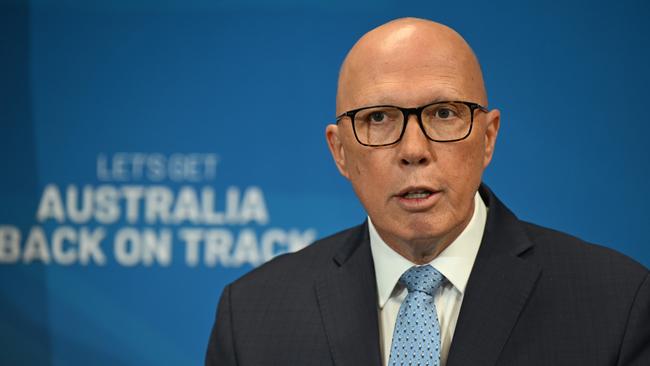
After the 2022 election Dutton now faces a challenge from teal independents who won affluent Liberal seats from Morrison in that election, who pose no threat to Labor and some of whom he must defeat if he is to have any hope of getting into the magical realm of an additional 20-plus seats.
Another challenge for Dutton is that while public polling shows there has been a big rise in Liberal support since the 2022 election and Labor’s remains stalled, the national rise is not necessarily reflected in the seats and areas where the Coalition must win.
Although Labor could lose a seat or two in the Northern Territory, Tasmania and Western Australia, the Coalition’s dominance in Dutton’s home state Queensland means it is unlikely the LNP could win Labor seats and, indeed, in Brisbane, Labor could win seats from the Greens.
This means the real battleground states will be Victoria, where the Allan Labor government is a drag on federal Labor, and NSW, where there is a string of coastal seats at risk because of renewable energy projects.
In NSW, in particular, Dutton has aimed at regional areas and the outer suburbs of Sydney where Labor seats voted overwhelmingly against the Indigenous voice.
It is no coincidence that Dutton – the last surviving Howard government minister – adopted the same strategy on petrol excise that John Howard used in 2001 and identified with the “tough leadership” of Howard in his budget-in-reply speech on Thursday night.
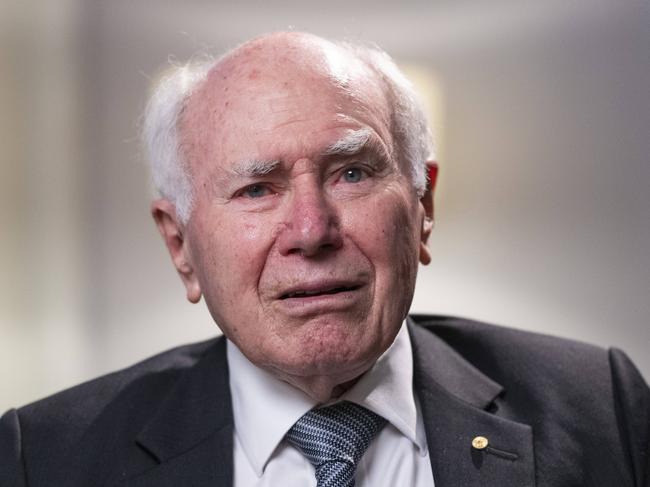
Nor is it an accident that Dutton’s central energy policy is aimed at reducing cost and providing reliability for the energy grid rather than achieving the shorter-term targets Labor has set.
The overarching nuclear power policy is a long-term policy aimed at “firming” renewables in the future – Dutton has resisted counter-productive calls to dump the 2050 net-zero target – and the expansion and encouragement of gas production is about reliability.
There is little doubt that Climate Change and Energy Minister Chris Bowen is the most unpopular of Albanese’s ministers and Dutton has targeted Bowen’s “renewables only” policy as pushing up gas and electricity prices as well as alienating business and farmers with floating windmills and transmission wires.
Hence, Dutton’s big play on Thursday night in parliament, apart from fuel excise, was revamping gas supply – an east coast gas reservation policy, more supply and fast-tracking a decision on the North West Shelf project – which just coincided with the latest warnings of gas shortages and price rises.
Dutton declared: “We have an abundance of natural gas. Gas is key to making electricity and keeping the lights on.
“But the Albanese government has stalled projects from getting off the ground and created a national gas emergency due to insufficient supply. Under Labor, gas prices have gone up for households and businesses by 34 per cent and 43 per cent respectively.
“There wouldn’t be any need for rebates if the government’s energy policy was working. These rebates are Labor’s admission of its energy policy failure.”
This is the essence of Dutton’s plan – common sense for the common man – with appeals to the hip pocket that may be unconventional and require voters to accept Dutton’s personal commitment that he needs to things that he may not usually do but there is a “sliding-doors moment” that requires an unalloyed effort.


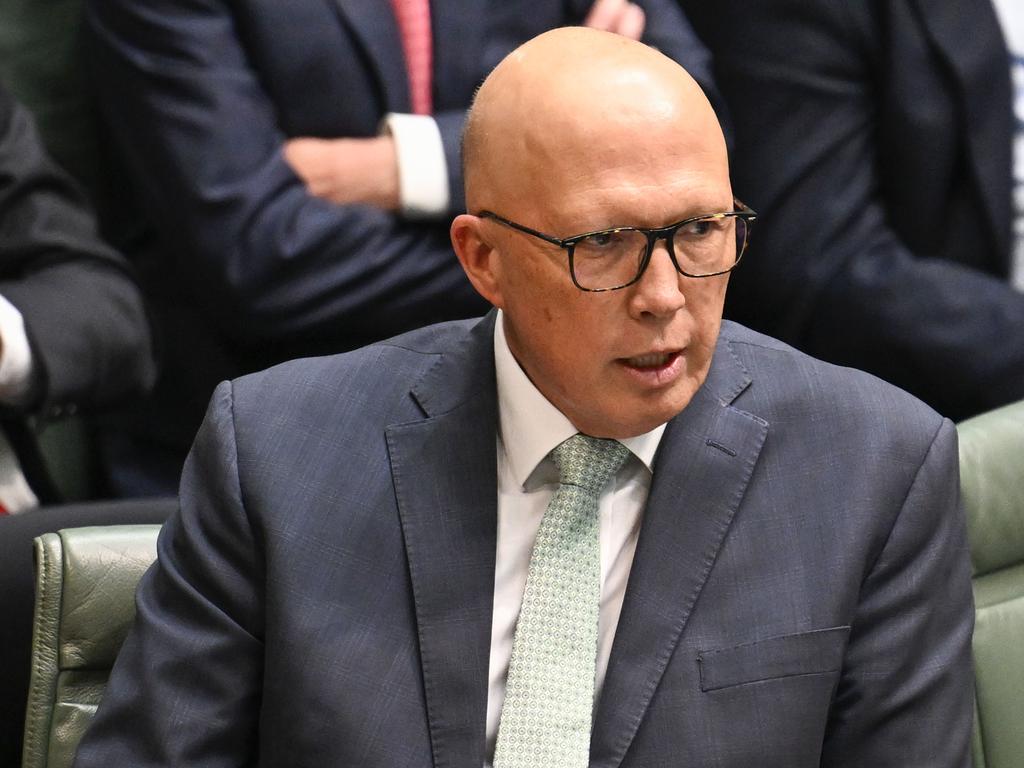
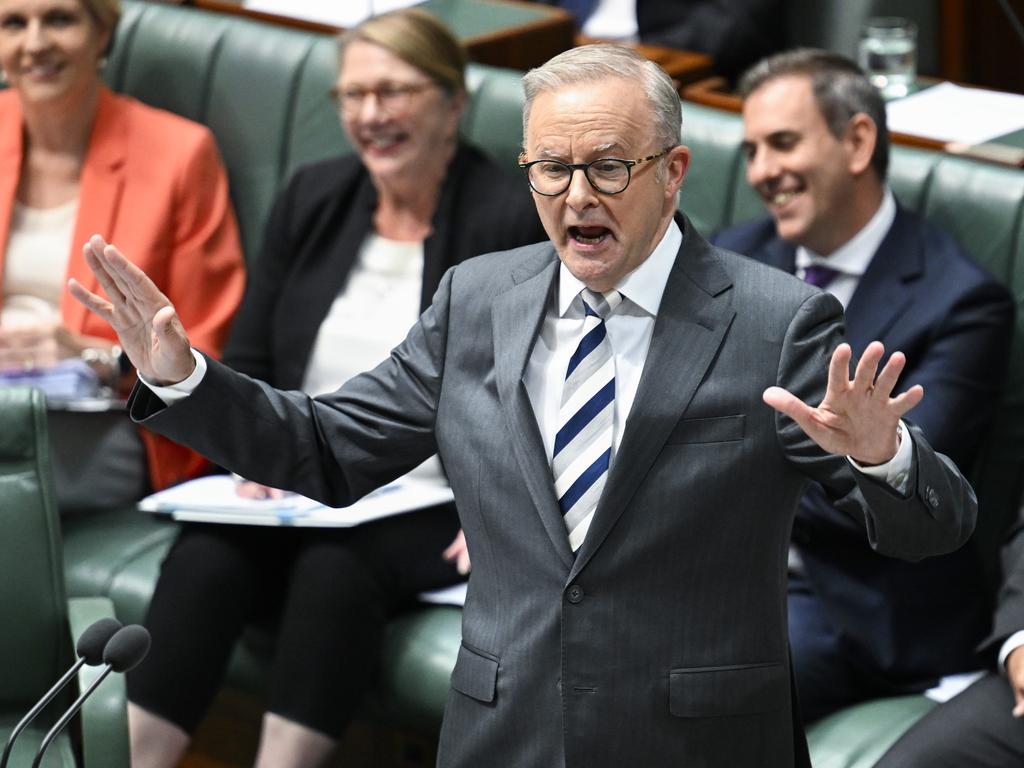

To join the conversation, please log in. Don't have an account? Register
Join the conversation, you are commenting as Logout